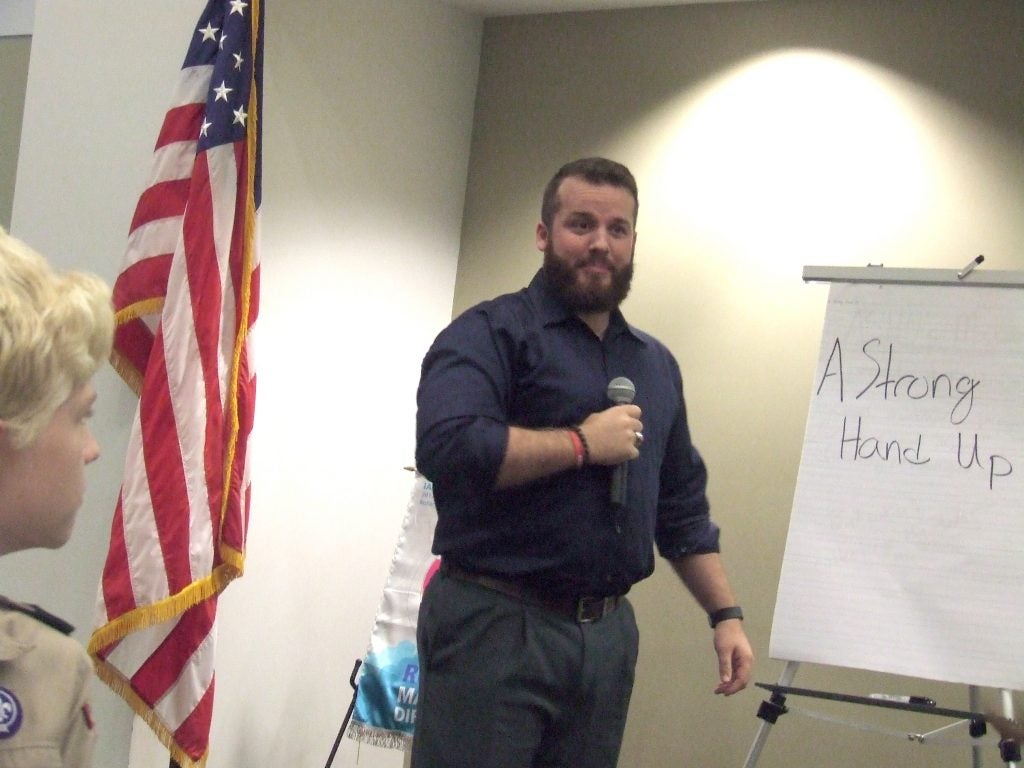Program aimed to reduce recidivism presented
Published 4:49 pm Tuesday, May 23, 2017
Kyle Brooks was the guest speaker at Bainbridge Rotary this week, where he spoke of A Strong Hand Up Awareness Program, designed to collect data of legal offenders, and reduce recidivism, especially by those convicted of alcohol/drug abuse.
He described it as an effective, affordable program costing $100, compared to the high expense of other rehabilitation programs. Brooks said it takes away price as a barrier to change. It consists of short, local, three-hour sessions on Saturdays.
They gather data from attendees regarding the usual demographics of age, race, marital status, income, education, etc., while going steps further to explore their personal values, conflict and anger issues and responsibility.
Attendees, referrals from court, are asked what they expect to receive from the classes. Admittedly, some will say they just want the certification, but a few want to learn to change their lives.
Brooks said an interesting sideline is a civics portion included in all the sessions, where attendees are asked to answer 100 questions about the United States, government and history. It is the same test required of legal immigrants seeking citizenship. He noted that people coming into this country know more about us than we do.
MAP stands for Marijuana Awareness Program, which explores substance abuse and the consequences it has on relationships and decision-making. Students are asked to list the pros and cons of marijuana usage. They came up with five or so pros, and a long list of 25 negative effects.
Pictures of MRI’s of the brains that show the effects on those who regularly smoke marijuana several times a day are shown for emphasis.
TAP is a Theft Awareness Program designed for chronic shoplifters. Brooks said, interestingly enough, many of those who shoplift have the money to pay, but it has become an addiction. They get a thrill from it.
Again they are asked to determine values on all of the programs. They are given a list and asked to underline 10 they consider important, then their top two.
The question becomes, “Do your actions match your values?”
Many of the violators learned it from their parents and/or grandparents. Brooks asserts it is necessary to break the cycle before change can occur.
Asking what was the main reason people don’t change, Brooks answered his own question. “They don’t know how.” He said it takes engagement with the individual before they can make a change, and went on to explain the importance of a social contract.
He described it as an unwritten agreement to cooperate for social benefit, thus resulting in collaboration. Each person changed then impacts others and changes the lives of those connected to him.
He closed by reading a pledge he had written to himself, as he too, at one time had a problem with alcohol and marijuana.






